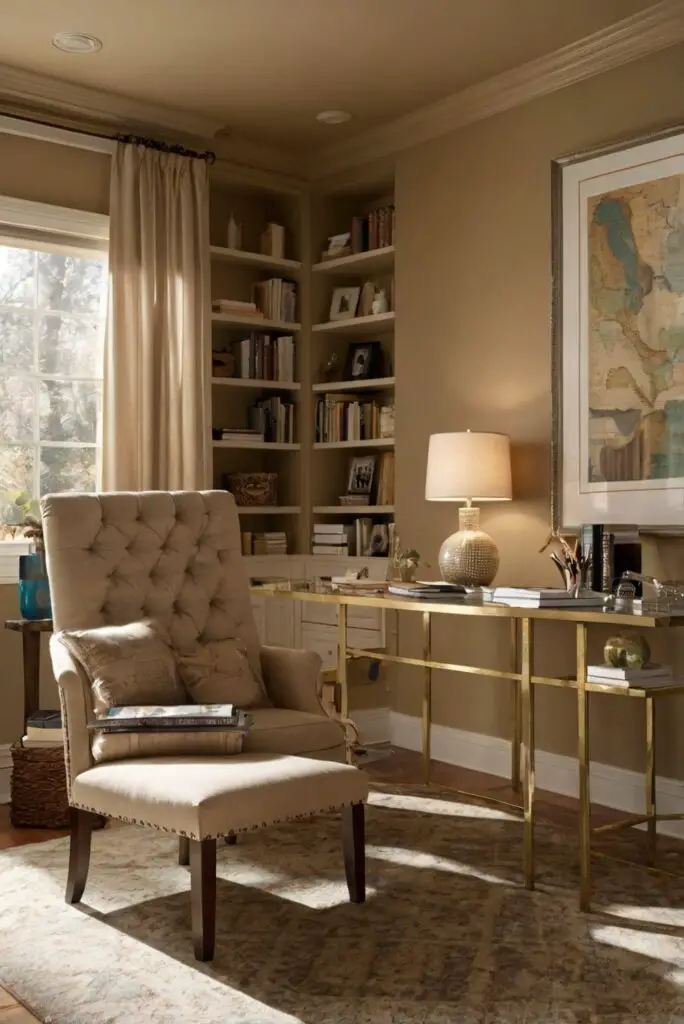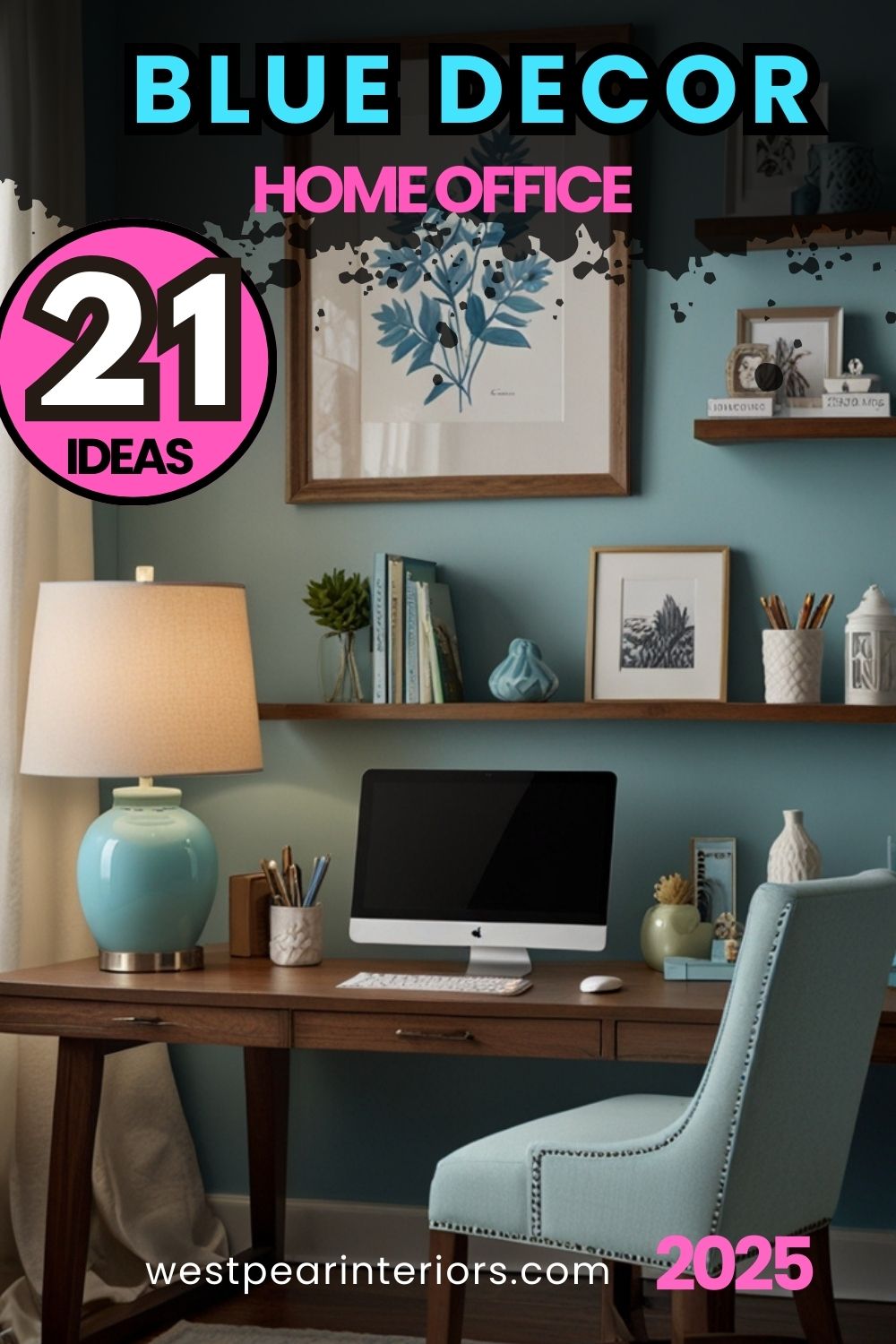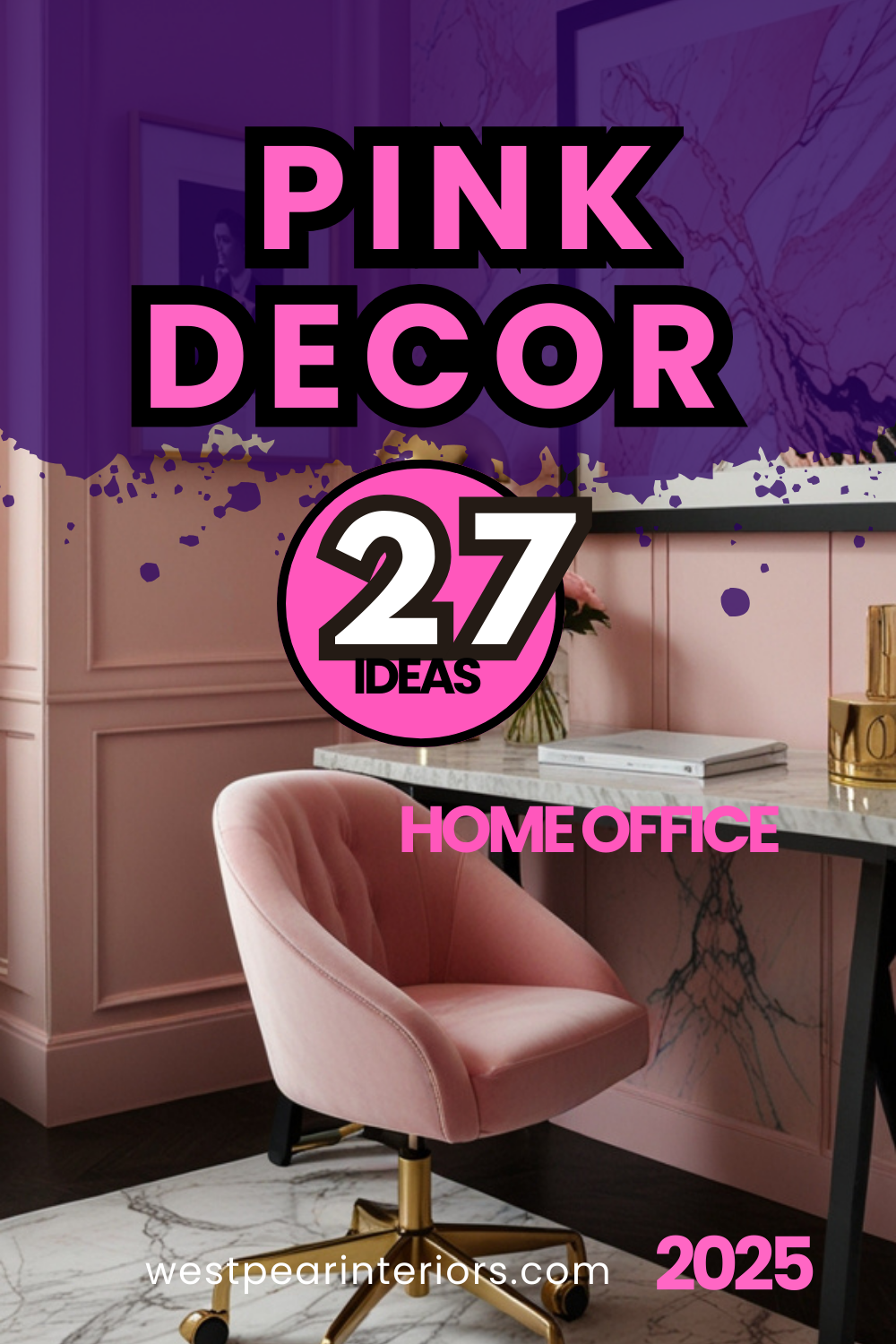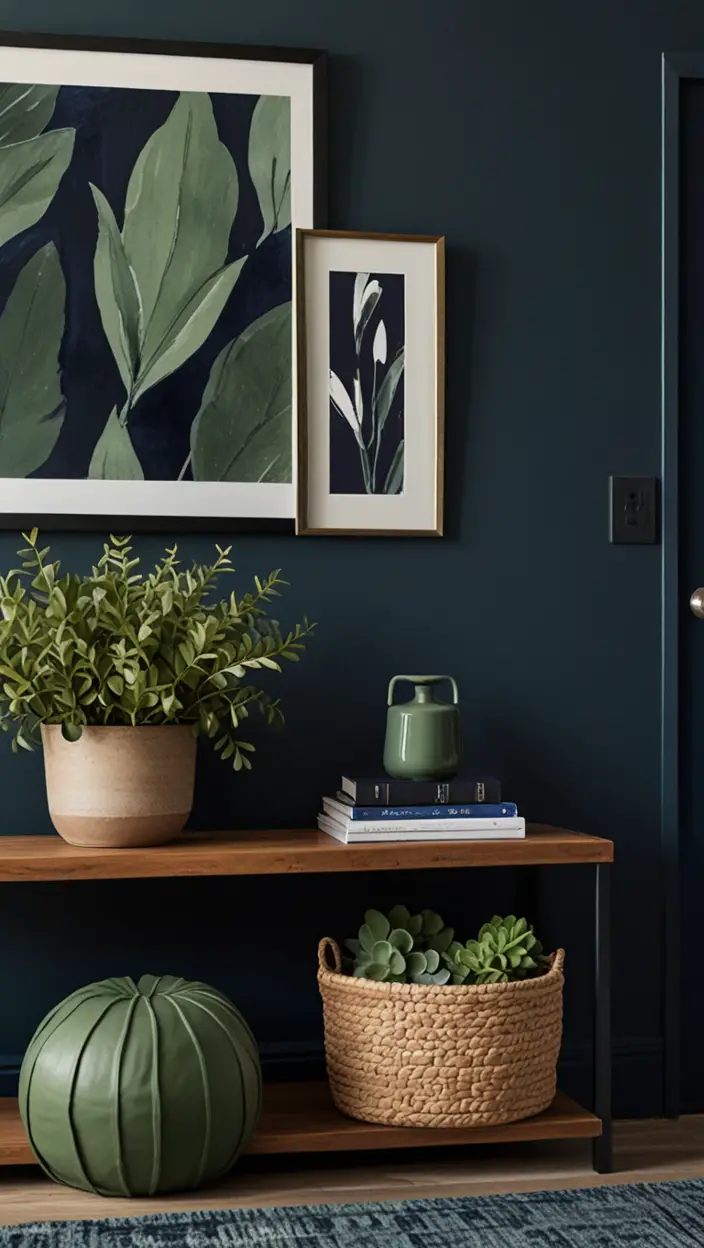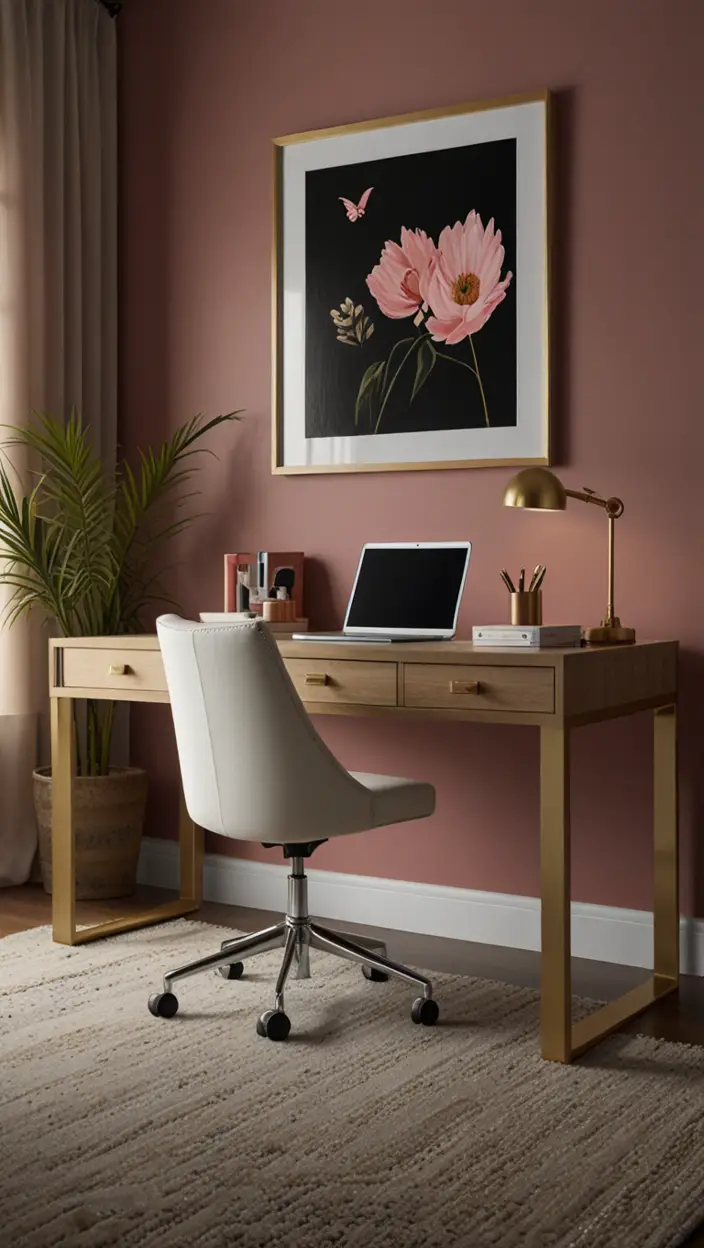Ready to transform your home office into a stylish and productive space? Discover the perfect color for your furniture to create a work environment you’ll love.
As an interior designer, my favorite color for home office furniture is a neutral tone such as beige or light grey. These colors create a calm and inviting atmosphere, which is essential for a productive work environment. To match the furniture color, I recommend selecting wall paint in a slightly different shade to create depth and interest. When it comes to space planning, make sure the furniture complements the overall design of the room and allows for easy movement. Consider incorporating pops of color through accessories like rugs, artwork, or plants to add personality to the space. Remember to balance functionality with aesthetics for a well-designed home office.
Choosing the right color for your home office furniture is essential to create a conducive and visually appealing workspace. Here are some tips to help you select the perfect color that complements the rest of your room’s decor:
My Lovely Spring Paint for 2025
Ready for a Spring Makeover? Explore the Freshest 2025 Paint Trends!
White Sage/Green SW Pistachio green Soft blue Honeysweet/Orange Pink Sugar Sage Tint BMAs an Amazon Associate, I may earn a commission from qualifying purchases at no extra cost to you.
1. **Consider the overall color scheme:** Take into account the colors used in the rest of the room, including the walls, flooring, and accents. Choose a furniture color that harmonizes with these existing elements for a cohesive look.
2. **Neutral tones:** Opting for neutral colors such as white, beige, gray, or light wood tones is a safe and versatile choice. Neutral colors can easily blend with any decor style and provide a calming backdrop for work.
3. **Accent colors:** If you want to add a pop of color to your home office, consider using accent pieces like a brightly colored chair or desk accessories. This allows you to inject personality into the space without overwhelming it with a bold color choice.
My fAV Spring DECOR for 2025
Discover Spring’s Best 2025 Decor Combinations – Perfect for Any Room!
Oversized Indoor Plants White Curved Sofas Rugs BOH Brown Cream Moroccan Hype Boho Rug Outdoor Patio Furniture Sets Topfinel Pillow CoversAs an Amazon Associate, I may earn a commission from qualifying purchases at no extra cost to you.
4. **Color psychology:** Take into consideration the psychological effects of color on productivity and mood. For example, blue is known to increase productivity, green promotes a sense of calm, and yellow can enhance creativity. Choose a color that aligns with your work goals.
5. **Natural light:** The amount of natural light in your home office can influence how colors appear. Rooms with ample natural light can handle darker furniture colors, while spaces with limited light may benefit from lighter furniture hues to brighten the room.
6. **Texture and finish:** Consider the texture and finish of the furniture along with the color. Matte finishes can create a sophisticated look, while glossy finishes can reflect light and make the space feel more expansive.
7. **Personal preference:** Ultimately, your favorite color should play a significant role in your decision. Since your home office is a personal space where you spend a lot of time, choosing a color that resonates with you can boost your overall well-being and work satisfaction.
When it comes to the most popular color choices for home office furniture currently, shades of white and natural wood tones are prevalent. White furniture gives a clean and timeless look to the space, while wood tones add warmth and character. These colors are versatile and complement a variety of decor styles, making them a popular choice among homeowners.
Mixing and matching different colored furniture pieces in your home office can create an eclectic and personalized look. However, to maintain visual harmony, ensure that there is a unifying element such as a shared texture or style. For example, mix different colored chairs around a uniform wooden desk to achieve a cohesive yet eclectic vibe.
To ensure that the color of your home office furniture enhances productivity and creativity, follow these tips:
1. **Color coding:** Organize your furniture according to color to create a visually stimulating environment that can inspire creativity and focus. For example, use different colors for storage cabinets to categorize items and streamline your workflow.
2. **Color psychology:** Use the principles of color psychology to your advantage. Blue is associated with calmness and productivity, making it a suitable choice for desks or chairs. Yellow can stimulate creativity and energy, making it ideal for accent pieces.
3. **Personalization:** Incorporate your favorite colors into your office space to create a personalized and motivating environment. Surround yourself with colors that evoke positive emotions and energy, which can improve your overall work performance.
Alternative paint colors can be used to match specific furniture colors in your home office. For example, if you have dark wood furniture, consider painting the walls a light neutral color like beige or soft gray to create a balanced contrast. Alternatively, you can choose a wall color that complements the undertones of your furniture, such as warm beige walls with cherry wood furniture or cool gray walls with white furniture.
In organizing your home office furniture according to color, start by grouping items of similar colors together to create a cohesive look. For example, place all white furniture pieces on one side of the room and all black furniture pieces on the other side. This visually separates the space and adds a sense of order and balance.
When choosing the color of your home office furniture, it is crucial to consider the lighting conditions in the room. Natural light can affect how colors appear, so test out different furniture colors under various lighting conditions before making a final decision. If your office space lacks natural light, consider using light-colored furniture to brighten the room and create a more inviting atmosphere.
### Key Takeaways
– **Consider the overall color scheme:** Choose a furniture color that complements the existing decor of the room.
– **Neutral tones:** Neutral colors like white and beige are versatile and calming choices for home office furniture.
– **Color psychology:** Select colors based on their psychological effects on productivity and mood.
– **Natural light:** Light levels in the room can impact how colors are perceived, so consider this when choosing furniture colors.

